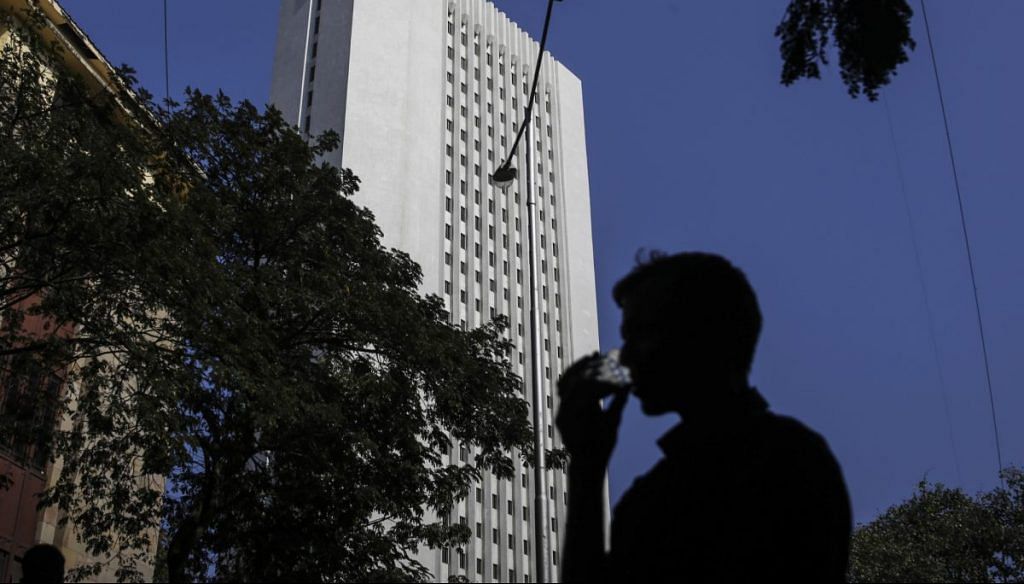New Delhi: Led by a sharp fall in tax revenues, India’s fiscal deficit rose sharply to 4.6 per cent of the gross domestic product in 2019-20, as against a revised target of 3.8 per cent, according to data released by the Controller General of Accounts Friday.
A slump in economic growth exacerbated by the Covid-19 pandemic and the ensuing lockdown, especially in the last quarter, has led to the massive slippage.
The last time the fiscal deficit as a percentage of GDP crossed 4.5 per cent was in 2012-13, when it was recorded at 4.8 per cent.
Data released by the Controller General of Accounts, the principal adviser on accounting to the Indian government, Friday showed that India’s fiscal deficit was at Rs 9.36 lakh crore in 2019-20 as against the revised estimate of Rs 7.67 lakh crore.
This was mainly on account of tax revenues falling short by nearly Rs 1.5 lakh crore from the revised tax estimates. Tax revenues were at Rs 13.55 lakh crore in 2019-20 as against the revised estimates of more than Rs 15 lakh crore.
Separate data released by the Central Statistics Office Friday showed that India’s nominal GDP grew at only 7.2 per cent to Rs 203 lakh crore.
Both these factors together pushed up the fiscal deficit as a percentage of GDP.
Also Read: Indian economy grew at 11-year-low of 4.2% in 2019-20, just 3.1% in Q4
Escape clause reprieve won’t help
While presenting her budget on 1 February, Finance Minister Nirmala Sitharaman had invoked an escape clause in the Fiscal Responsibility and Budget Management Act for 2019-20 and 2020-21.
This allowed the government to deviate from the projected fiscal deficit targets for both these years by 0.5 percentage points, to 3.8 per cent and 3.5 per cent, respectively.
However, on account of the fallout of the pandemic on the economy, none of these projections is likely to hold.
“Both direct taxes and GST collections recorded a sobering contraction in March 2020, highlighting the impact of the commencement of the lockdown on government revenues,” said Aditi Nayar, principal economist at ICRA, a professional investment information and credit rating agency, in a note issued Friday.
She added that net tax revenues in 2020-21 may fall short by Rs 3.3 lakh crore due to the “anticipated compression in consumption and income levels following the Covid-19 pandemic”. Disinvestment proceeds could also fall short by Rs 1 lakh crore, she said.
Also Read: Nirmala Sitharaman’s anger isn’t helping Modi govt’s image in lockdown
